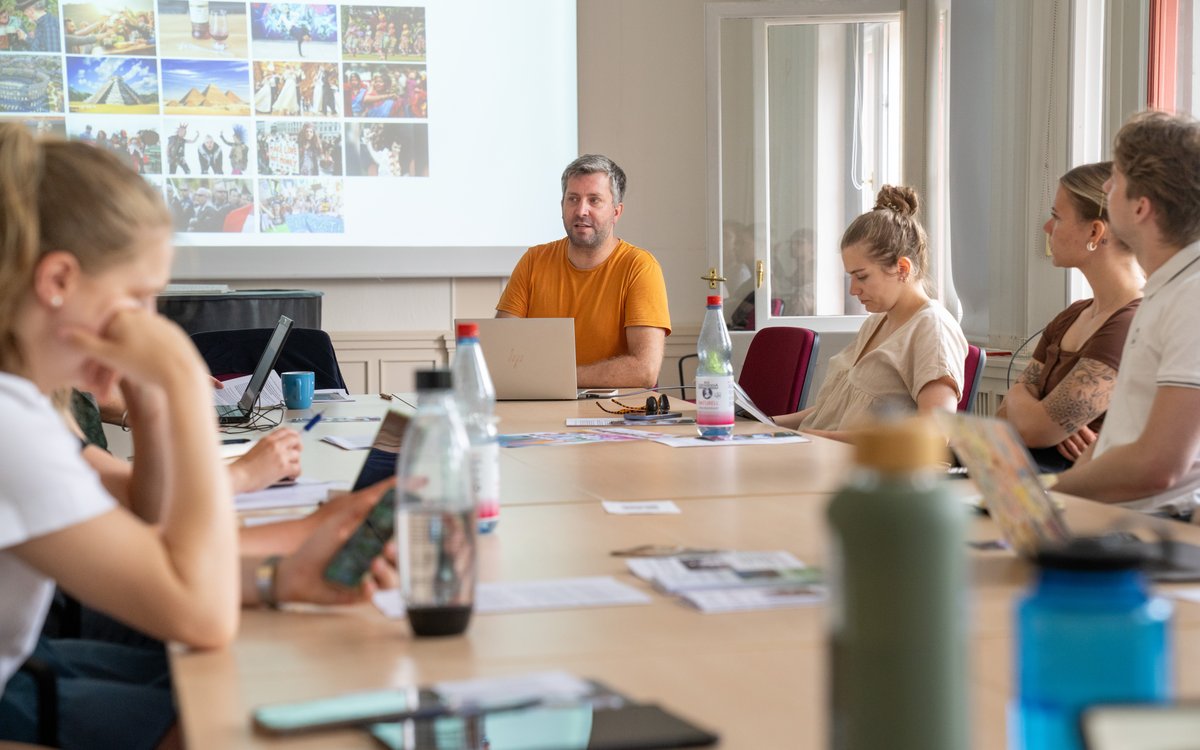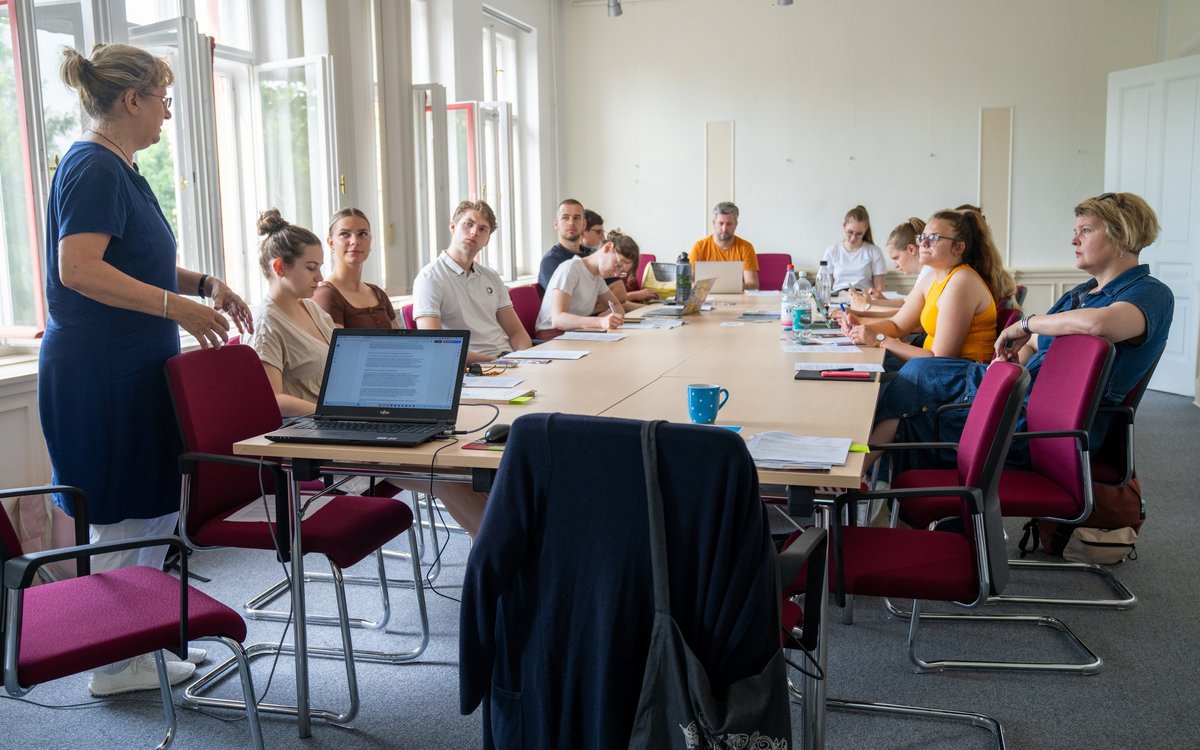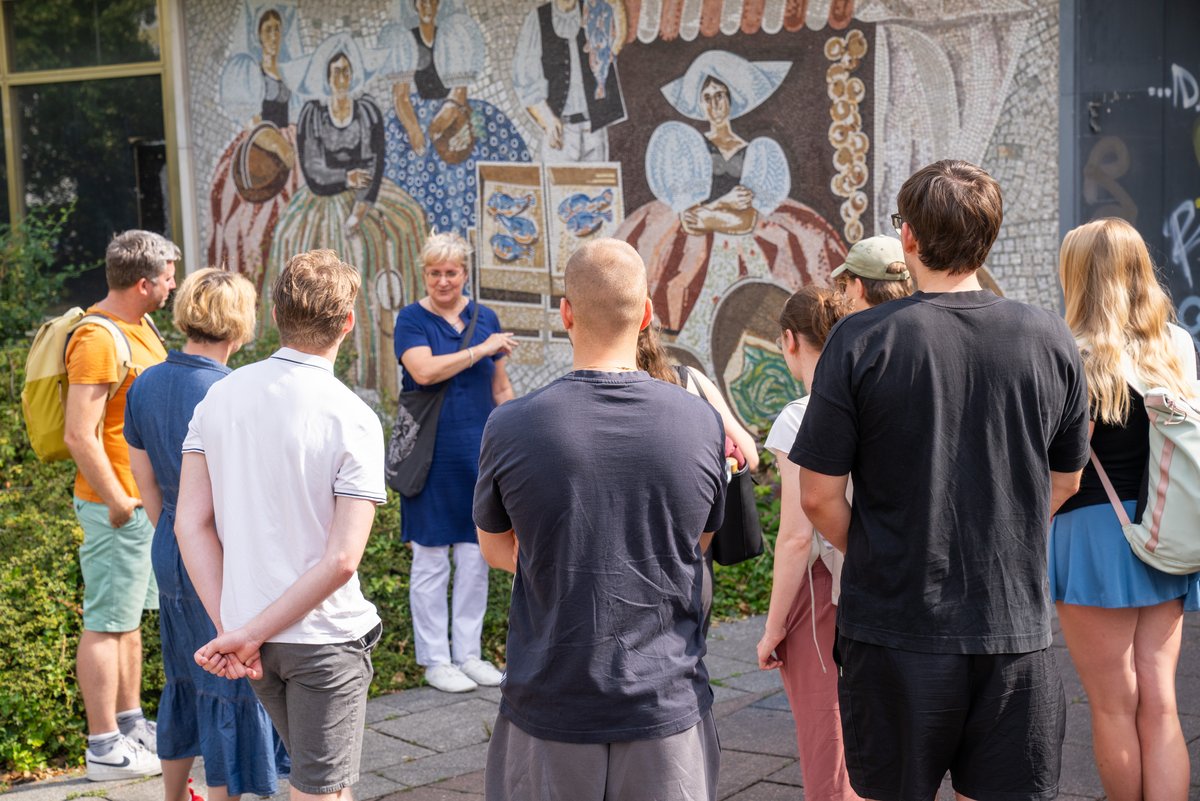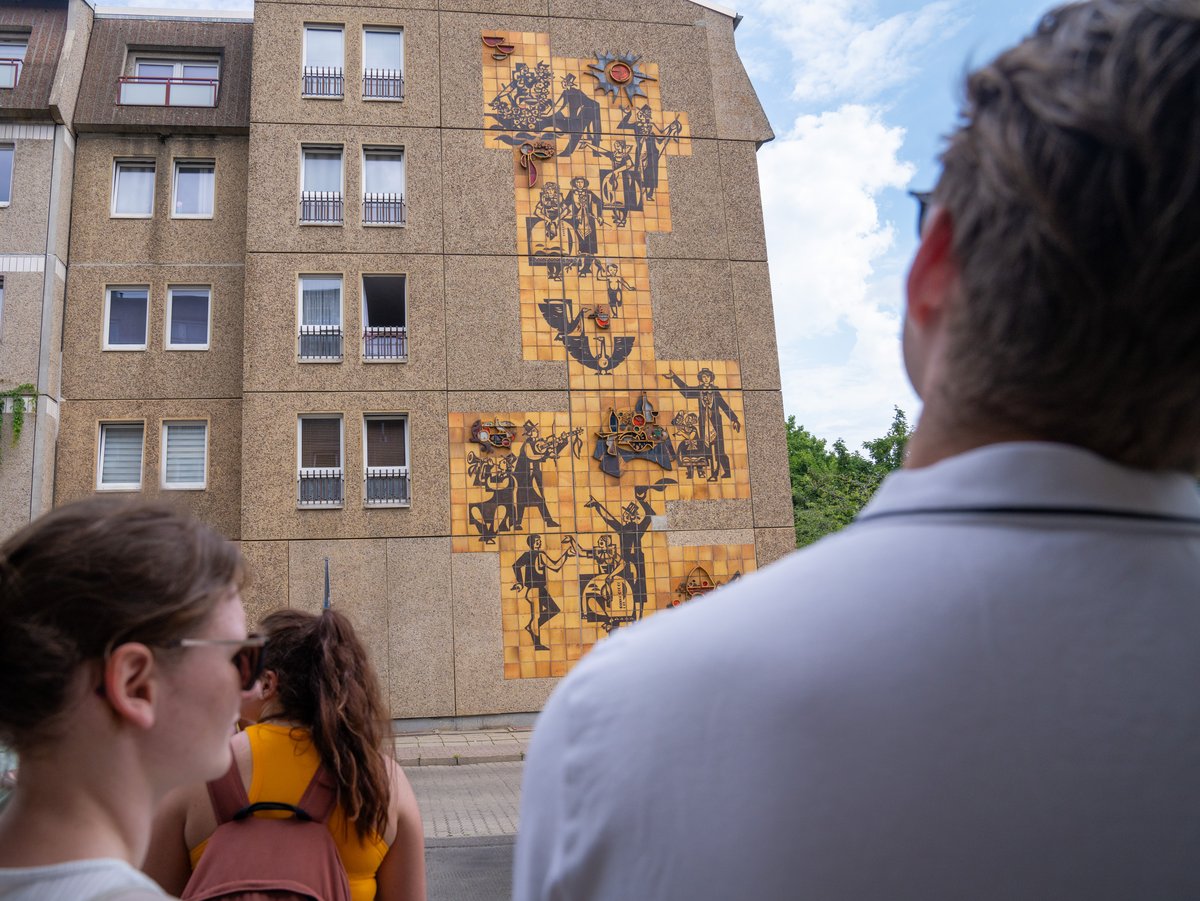Interdisciplinary learning - innovative FÜS modules at BTU: "Healthy and social living spaces of the future"
FÜS modules focus on innovative teaching methods, future-relevant tasks and scientific challenges .In a combination of theoretical knowledge acquisition and practical application, BTU students can not only discover new perspectives, but also work together with their fellow students on an interdisciplinary basis. In this way, they strengthen their personal competences and interpersonal skills in addition to their subject-specific qualifications. Almost all Bachelor's and Master's study programmes at BTU require students to complete an FÜS module.
This summer, for the fourth time, the FÜS module "Healthy and social living spaces of the future" focussed on the extent to which spaces are only used and perceived as places or as spaces that shape the lives of individuals, communities and societies. It invites participating students to conduct interdisciplinary research into the interfaces between Architecture, Social Work, Health, Digitalisation and Sustainability. They work together to combine different approaches and perspectives into a holistic understanding of healthy and social spaces.
"The special thing about this module is really the exchange between disciplines. Whether you come from Architecture, Social Work or Health Sciences - every perspective is valuable," emphasises Gabriele Weineck, one of the supervisors of this FÜS module.
The students also get to know all three BTU locations and other spaces such as media rooms, lost places and environmental spaces. This semester included excursions on the topics of space formation, loss of home and cultural spaces. For example, the seminar participants visited the Schlosskirchpassage Cottbus, the Sorbian cultural information centre LODKA in Cottbus and various locations in the Senftenberg urban area.
When choosing their performance verification at the end of the semester, students are given plenty of freedom to work on the topic individually. The results could be posters, video films, models, creative media products or something completely different. This allows students to analyse and interpret spaces in their very own way and present their findings creatively. This also regularly results in ideas that the students continue to develop and try to realise beyond the duration of the module.
A reflection diary, which is kept during the semester, provides students on this module with a visual basis. They can then develop their own ideas and concepts on this basis.




